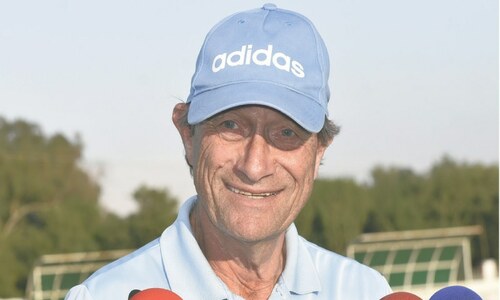
Thank god for even years.
Today, we’ll see the start of the last great international tournament. With 24 teams being allowed entry to the Euros in 2016, this great tournament will go the way of the World Cup – where the first half of the tournament is full of meaningless mismatches. So it makes sense to cherish Polkraine.
The Euros have been defined by consistently high-quality football (Euro2000 is, easily, the best tournament in the last 25 years) and their ability to throw up surprises. Greece won the 2004 edition having never won a game in a major tournament beforehand. Denmark won in 1992 having not qualified for the tournament (they replaced Yugoslavia which had just entered a civil war). And most of all, England actually played well at Euro96. Few things are more surprising than an England team performing at an international tournament.
If there is to be a surprise this year round, it’s bound to be from Group A. The Greeks continue to play the beat-them-with-boredom strategy that has served them so well over the past decade. The Czechs, with the worst team they’ve had since the Velvet Divorce, are emulating the Greeks: they scored only 12 goals in qualifying, no other team which is going to be in Polkraine scored less. Thus it could come down to the remaining two teams: Russia and Poland. The former will aim to finally realise the potential of what was supposed to be a golden generation. CSKA and Zenit, in particular, have performed well over the last eight years in the European club scene. But then the national team has regressed since reaching the semi-final of the Euros four years ago. They failed to qualify for the World Cup in South Africa – and one gets the feeling that this will be the last chance for the likes of Arshavin and Ignashevich to make their marks in international football. The winner of this group is likely to face the Dutch. Although they were finalists two years ago in South Africa, they are very much a “broken team” with distinctly average defenders. Thus it’s the best possible chance for Poland to relive their past glories. Poland has an odd history in football – they’ve only qualified for 7 of the 27 major tournaments since the second World War, but have reached as many World cup semi-finals as England or Spain. The Dortmund duo of Lewandowski and Piszczek are, probably, the only world-class players they’ve had since Zbigniew Boniek. Aided by their partisan crowds, they have the best possible chance of being the surprise of the tournament.
The remaining groups – including the so-called Group of Death – are likely to follow the World Cup patterns: the best two (i.e. the two highest ranked) teams qualify.
But they should provide a far higher quality of football than Group A, or the group-stages of the World Cups have done. Just this weekend, Portugal take on the Germans and the Spanish and Italians lock horns. It’s almost good enough to make us forget that this is not how it is supposed to be.
The greatest thrill of international tournaments – apart from discovering new players – used to be how every team had a distinct identity. They truly were representative of their countries. Even as recently as the 90s the Germans played with a libero, the Italians played with a sweeper, the Portuguese played gung-ho with wingers, the Spanish were confused whether to play tiki-taka or hoofball and the French and English alternated between 4-4-2, 3-5-2 and anarchy. For the tournament in Polkraine all (except the English, of course) will play either the 4-2-3-1, or its first cousin the 4-3-3, with a passing metronome in the middle of the park (Xavi, Pirlo, Cabaye, Schweinsteiger) who will define how the team plays: short-passing, patient football. The blueprint created by the French national team and the major Spanish sides (particularly Deportivo and Valencia) around the turn of the century, later perfected by Barcelona, has led us this: the near-complete homogenisation of football.
There is one other tactical approach that will be applied though. Unfortunately, that is something that makes the fans yearn for the 4-3-3 everyone else uses. That, of course, is the ‘broken team.’ Regardless of the formation (usually 4-3-3 or 3-5-2), the broken team essentially is the anti-thesis of the Barcelona model. To exaggerate it a little, there are no ‘midfielders’ in such a team. Six or seven of the players act as defensive players, allowing the front three or four to exploit the opponents on counter, usually relying on individual inspiration for results. The Dutch, who have completely sold out, are the best exponents of this: a flat back-four with a double-pivot ahead of them allowing the front four of van Persie, Sneijder, Robben plus one complete freedom to attack, without any support. It makes sense, too. For most international teams (i.e. not Germany and Spain), it’s far easier for the coach to organise the team to destroy than to create. By overloading in defence, he allows his front players to create only one goal over the ninety minutes. And even if they can’t, you always have the penalties. The reliance on counter-attacking and broken teams may not be to everyone’s tastes, but as long as it succeeds, you won’t find many international coaches moving away from it.
But it still doesn’t mean that this should be anything but a good tournament. Two years ago, the only tactical diversity came from the South American teams: particularly from the genius of Marcelo Bielsa and the madness of Diego Maradona. A shorter, more competitive tournament should be better than what we saw in South Africa. And surely, that alone is something worth celebrating.













































